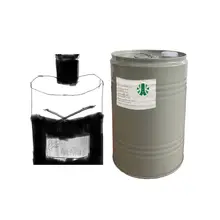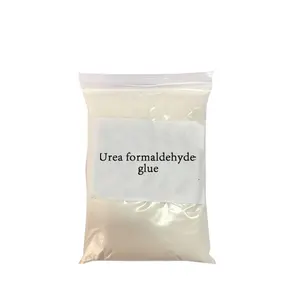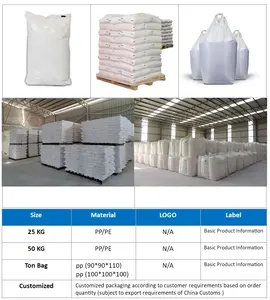Top categories

Energy Chemicals

Flavor & Fragrance

Chemical Reagents

Non-Explosive Demolition Agents

Other Chemicals

Custom Chemical Services

Biological Chemical Products

Painting & Coating

Surface Treatment Chemicals

Catalysts & Chemical Auxiliary Agents

Admixture & Additives

Pigments & Dyestuff

Basic Organic Chemicals

Agrochemicals

Inorganic Chemicals

Coating & Paint
About products and suppliers
Understanding Urea Fertilizer Purchases
Urea fertilizer stands out as an effective, water-soluble, chemical fertilizer, offering a substantial nitrogen supply to plants. Its widespread adoption in diverse agricultural sectors is attributed to its adaptability and efficacy in enhancing plant growth. While urea naturally occurs as a crystalline solid, it is commonly transformed into user-friendly variants like pellets, prills, or liquid solutions for agricultural use, facilitating application and nutrient absorption by plants.
At the heart of urea fertilizer's utility is its rich nitrogen content. Upon soil application, urea undergoes hydrolysis, decomposing into carbon dioxide and ammonia. Subsequently, the ammonia is converted into nitrate and other nitrogenous forms that plants can easily absorb through their roots. This process not only provides nourishment to plants but also supports protein synthesis and foliage development.
Urea fertilizers cater to a broad spectrum of users, ranging from smallholder farmers to expansive agribusinesses. They are a cornerstone of contemporary agricultural methods designed to optimize crop yields and operational efficiency. The performance of urea fertilizer is contingent upon variables such as application rates, timing, and soil conditions, positioning it as a pivotal element in sustainable and lucrative crop cultivation.
Varieties of Urea Fertilizer Available for Purchase
Urea fertilizer is available in multiple forms to meet diverse agricultural needs and application techniques. Common varieties include:
-
Granular Urea Fertilizer: These solid granules offer a gradual nitrogen release into the soil, ideal for sustained fertilization in crops like wheat, rice, and maize.
-
Liquid Urea Fertilizer: Known as UAN (urea ammonium nitrate), this concentrated liquid can be water-diluted for use in irrigation systems and is particularly suited for foliar feeding in hydroponic or greenhouse environments.
-
Controlled-Release Urea Fertilizer: These products are engineered to dispense nitrogen over a prolonged period, perfect for lawns, orchards, or vineyards where a single application sustains plant nutrition throughout the season.
-
Biuret-Containing Urea Fertilizer: Biuret, a byproduct of urea decomposition, offers an additional nitrogen source and is favored in regions where environmental considerations are paramount.
-
Sulfur-Coated Urea Fertilizer: The sulfur coating on these fertilizers retards nitrogen release, making them well-suited for acidic soils and helping to mitigate alkaline soil conditions.
Each urea fertilizer type is tailored for specific scenarios based on its release properties, intended soil type, application method (foliar or irrigation), and the climatic conditions of the application area.
Selecting the Appropriate Urea Fertilizer for Purchase
Choosing the right urea fertilizer for commercial use involves considering various factors that align with particular agricultural needs and business goals. Key considerations for businesses in the market for urea fertilizer include:
-
Release Type: Determine if quick-release, controlled-release, or slow-release urea best fits your application timing and soil conditions.
-
Application Method: Opt for a form (e.g., granular, prilled) that is compatible with your equipment and can be effortlessly applied in various settings.
-
Crop Sensitivity: Account for the sensitivity of your crops; certain urea forms (e.g., liquid urea for foliar applications) may not be well-tolerated by some plants.
-
Coating Options: If environmental considerations dictate a specific coating (e.g., polymer-coated for reduced impact), ensure the product adheres to those specifications.
-
Release Type and Duration: Align your choice of urea fertilizer with its intended purpose and your preferred application frequency.
By weighing these factors against your business requirements and the product's distinct attributes, you can make a well-informed selection of the urea fertilizer that best serves your agricultural practices.
Purchasing Urea Fertilizer on Alibaba.com
For enterprises in search of dependable sources of premium urea fertilizers, Alibaba.com emerges as a preeminent global trading hub, linking buyers with an extensive network of suppliers. With a track record spanning over two decades in international commerce, Alibaba.com has become a comprehensive platform catering to the varied demands of businesses across numerous industries.
The platform's expansive assortment enables purchasers to pinpoint the precise products they need—whether it's fast-acting nitrogenous urea for intensive agricultural use or specialized controlled-release variants for horticultural applications. Each listing details features such as release type, color options, and coating types, empowering buyers to make choices that are customized to their specific needs.
Alibaba.com's dedication to secure trading is underscored by services like Trade Assurance, which protects payments until buyers confirm their satisfaction with the delivery. This emphasis on reliability and quality establishes Alibaba.com not merely as a marketplace but as a committed partner in fostering bespoke trading experiences that propel businesses forward in the international arena.
Frequently Asked Questions About Urea Fertilizer Purchases
What is urea fertilizer and what are its applications?
Urea fertilizer is a nitrogen-rich fertilizer that, once in the soil, swiftly transforms into ammonia, enhancing soil fertility and boosting crop yields by providing an accessible nitrogen source for plant uptake.
In what ways does urea stand apart from other nitrogenous fertilizers?
Urea represents a concentrated form of nitrogen, unaccompanied by other elements, offering a potent nitrogen source, albeit lacking the additional nutrients found in compound fertilizers.
What advantages does urea fertilizer offer in agricultural settings?
Urea fertilizer is recognized for its cost-effectiveness and efficiency in delivering nitrogen to the soil, thereby reducing the necessity for multiple fertilizer applications.
Is urea fertilizer suitable for all crop types?
While urea is a versatile fertilizer applicable to numerous crops, the optimal application rate and timing should be tailored to the specific nutritional requirements of each crop.
How should one select the appropriate urea fertilizer for agricultural use?
The selection of the right urea fertilizer hinges on the soil needs of your farm, the desired form (granular, powder, liquid), and any additional nutrients or elements that may benefit your crops.
Why is the release type significant in urea fertilizers?
The release type of urea fertilizer influences its nitrogen availability and efficiency, dictating the rate at which nitrogen is absorbed and utilized by the crops.
What special considerations are there for storing and handling urea fertilizer?
Urea fertilizer should be kept in a cool, dry location, shielded from direct sunlight, with precautions taken to avert moisture ingress and the emission of ammonia gas, which could be detrimental to both the fertilizer and nearby plants.
How does urea compare to other prevalent nitrogenous fertilizers?
Urea's high solubility distinguishes it from many nitrogenous fertilizers, making it particularly suitable for sectors that demand swift nitrogen delivery to plants.
What function does coated urea serve in agriculture?
Coated urea granules are designed to curtail ammonia release, enabling a more measured and gradual nitrogen release, which concurrently diminishes the risks of nitrogen leaching and volatilization.
Is it possible to use urea fertilizer in organic farming?
As a synthetic product, urea is generally not employed in organic farming practices, although certified organic alternatives are available for organic cultivation.
How do agricultural and industrial grade urea differ?
Agricultural grade urea typically boasts higher purity levels, rendering it suitable for crop fertilization, whereas industrial grade may have lower purity and additional additives, aligning it with industrial applications.
























 浙公网安备 33010002000092号
浙公网安备 33010002000092号 浙B2-20120091-4
浙B2-20120091-4